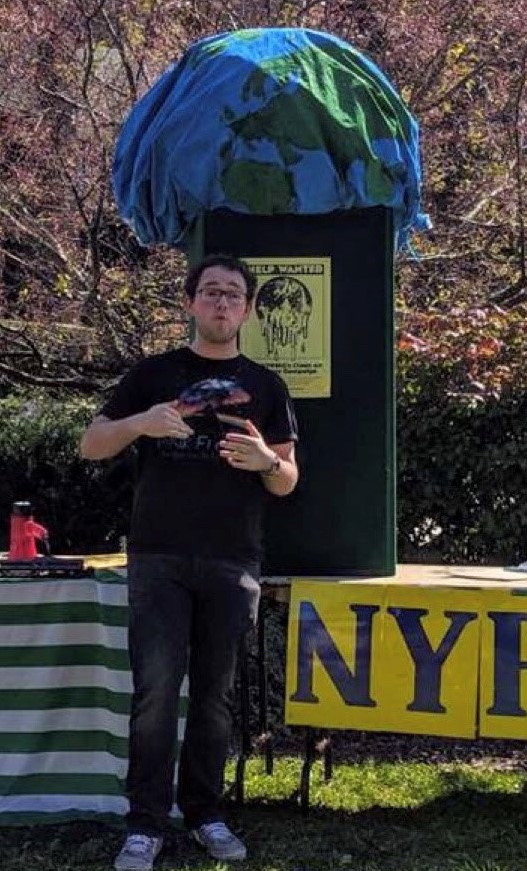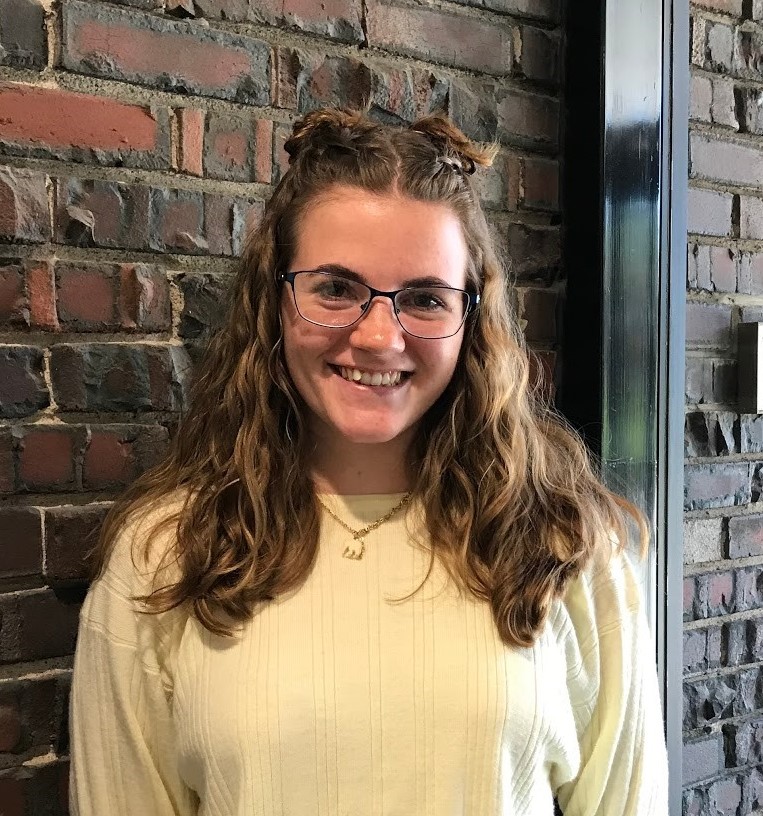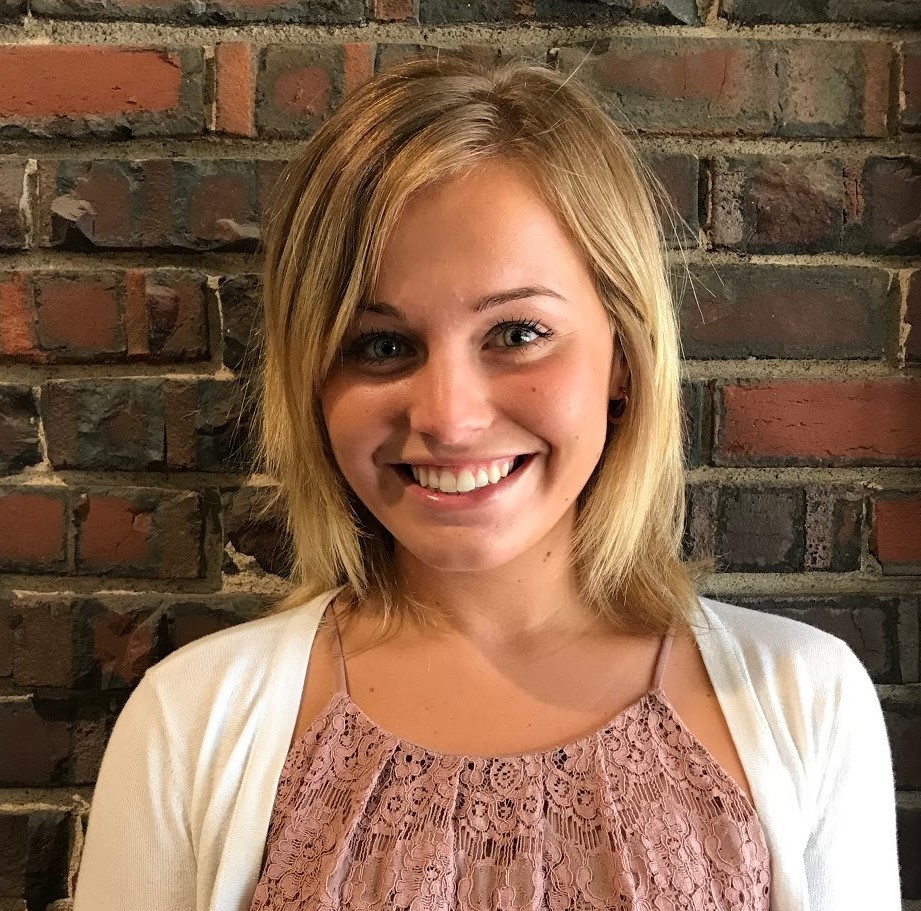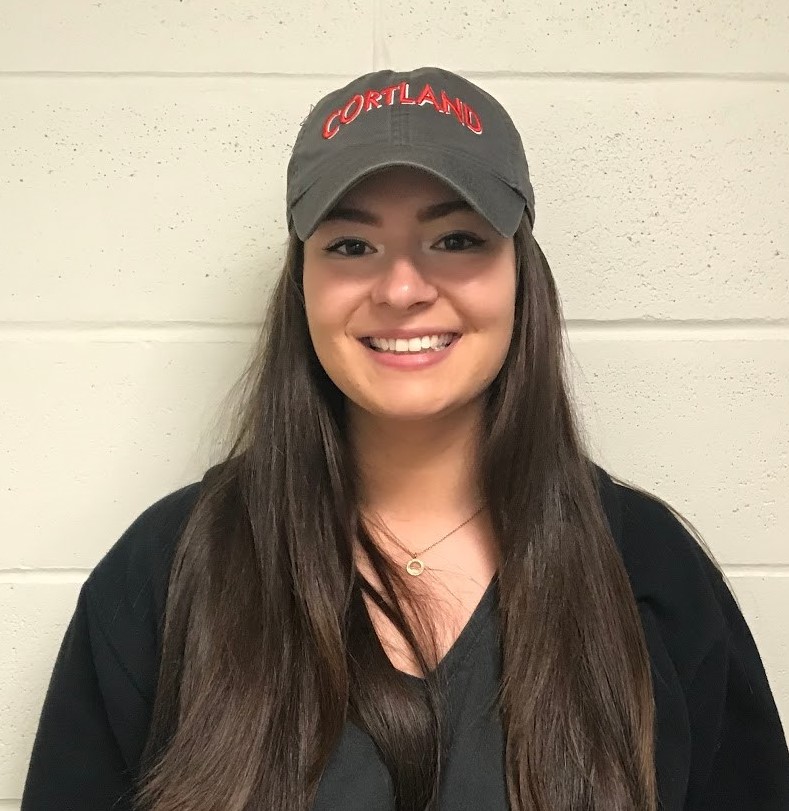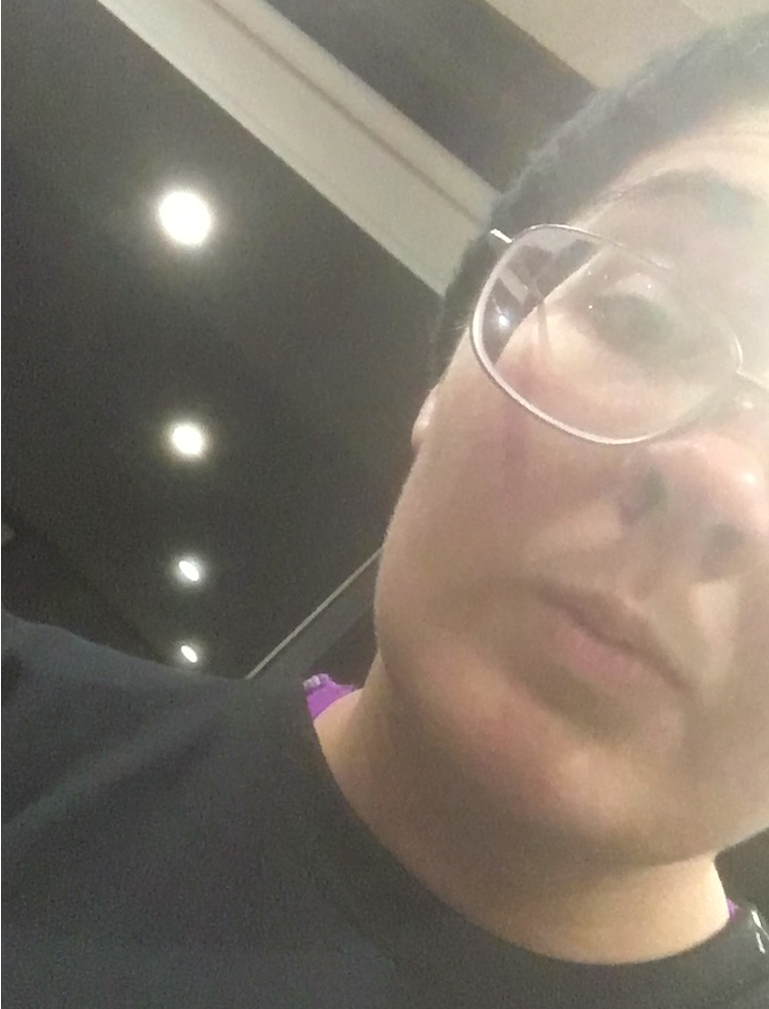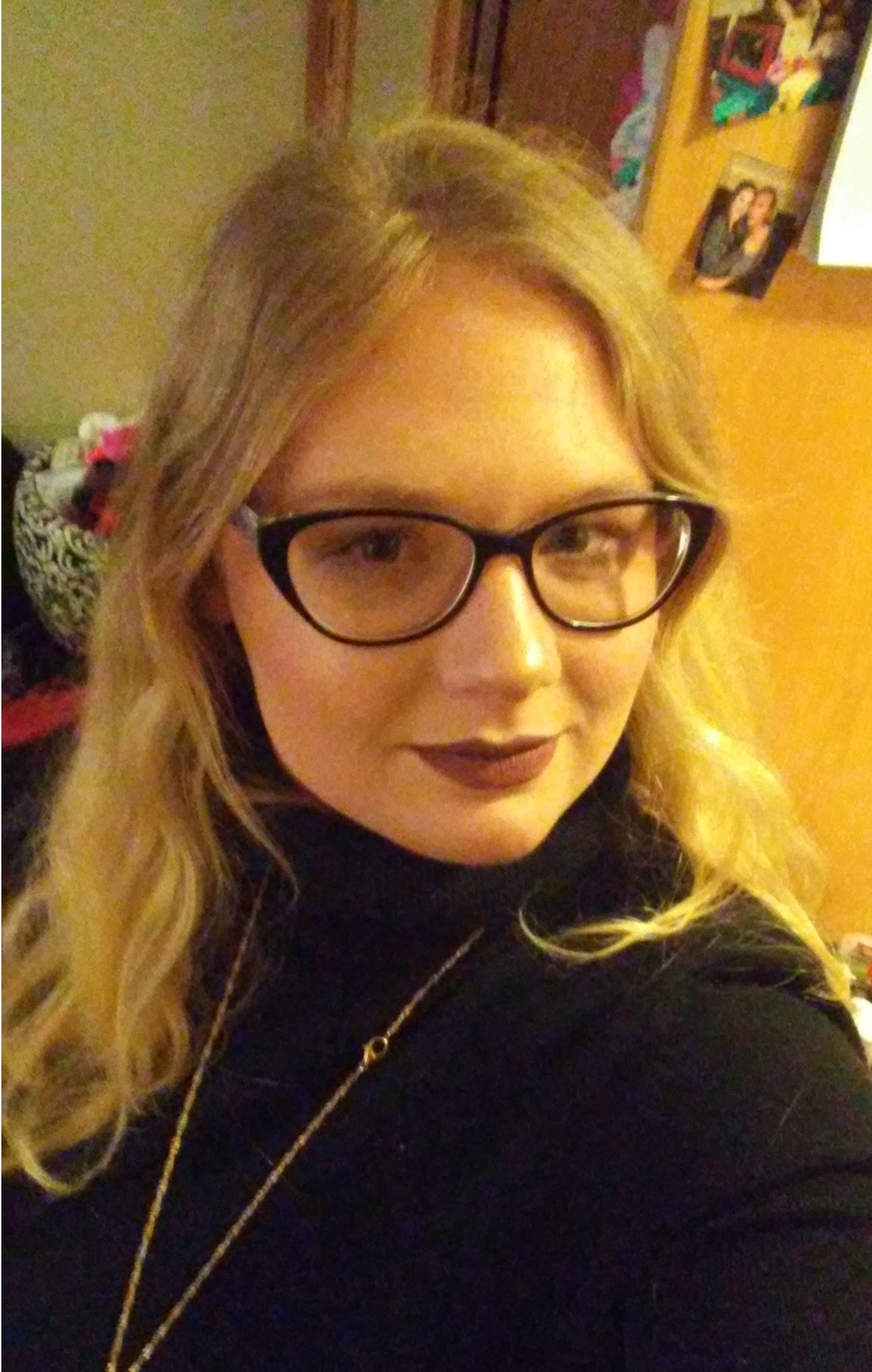Posts Tagged ‘student loans’
I’m a junior at SUNY Cortland studying Teaching English as a
Second Language. After graduation, I plan on becoming a teacher.
I pay for school in a few ways. I’ve taken out student loans and received grants. I work to help cover the costs on top of that. I receive both TAP and the Pell Grant which is about $5,000 per year between the two. I also work at ASC (auxiliary services) about seven hours a week to help pay for food and gas so that I can go to my observations for my education class.
If I didn’t receive financial aid, I wouldn’t be in school because there is just no way I could afford it. We need a fully funded SUNY so that everyone can get an education no matter their financial situation. We all have a right to an education and a better future.


I’m a sophomore at SUNY Cortland double majoring in anthropology
and international studies. I’m also getting a minor in Latin American studies.
At this point, I’m considering going to law school after graduation or going
into humanitarian work.
I’m from California, so I pay the out-of-state tuition for SUNY
Cortland, and I have no choice but to take out private loans and government
loans to pay for school. I don’t receive TAP or the Pell Grant, so I rely on my
loans to pay for college.
I do work-study and receive minimum wage, which I use to pay for textbooks and any other expenses that I have. I have a meal plan which is included in my loans. If I didn’t receive work-study aid, I would not be able to attend college.
There are countries that have free college, and opening the doors to education to more people will help future generations. The value of having a degree is huge, and making SUNY free would allow everyone to have the ability of attaining one.


I’m currently a sophomore at SUNY Cortland majoring in Political
Science. At this point, my plan is to attend graduate school after graduation.
As far as paying for school, I rely on taking out loans, using the
financial aid I receive, and having my parents pay some tuition out-of-pocket.
I receive both TAP and the Pell Grant, which allow me to pay for school each
semester. I don’t work, so I need financial aid to pay my tuition and to pay
for textbooks.
If I didn’t receive financial aid, in all likelihood, I would not
be able to attend college. So many people struggle to pay for college, which is
a large part of why SUNY needs to be fully funded. If SUNY was better funded,
those who can’t afford college would be able to go, and middle-class families
that have more than one child would have the ability to send all of their
children to school.
The biggest challenge that I have faced as a SUNY student is
dealing with the stress of not knowing how my parents will pay for my sister to
go to college in two years and worrying about paying off my student debt.


I’m a senior at SUNY Cortland majoring in Sociology with a minor
in Anthropology. Once I graduate, I plan on getting a job working at a
children’s home in case management.
I pay for school with private loans. Because my parents don’t
qualify, I don’t receive TAP or the Pell Grant. I have no option but to take
out loans. I have to work back home and on the weekends when I’m at school to
help pay for college and other expenses that I have.
When it comes to textbooks, my parents help pay for them, but I
pay out of pocket for groceries because I don’t have a meal plan. I decided to
take out another loan so that I could afford a meal plan, but that hasn’t gone
through yet.
Since my dad makes too much, I don’t qualify for financial aid,
but my parents still can’t afford to send me to school so my only option was to
take out multiple loans and have my dad co-sign them. My parents have already
put my two siblings through school, and we all have had to take out loans
because it’s just not possible for my parents to pay for us all to go.
My biggest concern is that when I leave school I won’t get a job that will allow me to pay off my loans, which I have to start making payments on six months after graduating. If SUNY was fully funded, I wouldn’t have to worry about paying all these loans back, and it would also open doors for those who can’t afford to attend school.


I am a senior at SUNY
Cortland studying Sociology with a concentration in Criminology. My plan after
graduation is to go into social work, and I’m currently looking at a possible
job in Maine that doesn’t require a master’s degree. I can’t afford graduate
school, and my loans are already collecting interest so I have no option but to
only look at jobs that don’t require another degree.
I currently pay for
school with subsidized and Stafford loans and a small amount of financial aid.
I don’t receive TAP, and I only receive a small amount of aid from the Pell
Grant. In order to pay for school, I have to work. I work at the child care
center at the YWCA before and after school.
I sometimes use the
money I make from my job to pay for textbooks, and my parents help out when
they can, but oftentimes if I can’t afford a textbook, I just don’t get it. I
have had textbooks that cost more than $100, and I just can’t afford that. I have
no option except to not buy the book.
I don’t have a meal
plan, so I pay for groceries out of pocket, and sometimes my parents help pay
for food. If I didn’t receive financial aid, going to school wouldn’t be an
option for me, or I would have no choice but to co-sign another loan.
A fully funded SUNY
system would allow those students who can’t afford school to have the ability
to attend, and it would help current students stay in school without fear of
paying loans back. Some students have no choice but to leave college because,
financially, they just can’t do it. How can anyone start a life after graduating
when they’re so deep in debt?
Not only is paying for school a challenge I face, but paying for parking is another financial obligation that I have. I would say that I have paid close to $300 in parking tickets since I have been here, and the cost of a parking pass is huge.
The biggest challenge that I’ve faced as a SUNY student is having my classes blocked when I can’t pay my bill. I wasn’t able to register for classes that I needed because I couldn’t make my payment. This could prevent students from graduating on time because certain classes are only offered at specific times, and if students can’t make their payments then they won’t be able to register when the class is offered. This forces students to pay more and stay for another semester.


I’m a senior at SUNY Cortland majoring in philosophy. After I
graduate, I plan on working for a nonprofit organization. I pay for school with
both financial aid and loans.
I receive TAP and
the Pell Grant, and I also have a part-time job during the semester.
When it comes to textbooks, I usually don’t buy them because I
can’t afford them. I try to find an online PDF version of the textbook, but if
I can’t find that, then I have no option but to not have the book for class.
For food, my financial aid covers the cost. I use it to buy groceries.
I depend on my financial aid, and this year I didn’t receive as much as previous semesters. My financial aid went from $4,000 to $400 because my sister moved out so my parents were expected to have that extra money to pay for my tuition. My mom had no choice but to take out a loan to help cover the costs of school.
We need a fully funded SUNY system so that all students have the
opportunity to attend college, and they won’t be worried about paying for it.
My biggest challenge as a SUNY student has been paying for school and worrying
about how my parents are going to help me pay for it. A student’s main focus should
not be paying for school; they should be focused on pursuing their education.


I’m a senior at SUNY Cortland studying Teaching English as a
Second Language. After graduation, I plan on getting a teaching job and to
begin working towards paying off my extensive student debt.
I pay for school in a few ways. I take out student loans and work a few part-time jobs, such as driving for Uber, cleaning houses, and interpreting for various places in the Syracuse area. As for TAP, I’m not eligible because I was working full-time, and I made too much money two years ago to qualify. I only receive about $200 from the Pell Grant, and I work as much as possible so that I am able to pay for college. As for textbooks, I use financial aid to pay for them. I don’t receive SNAP, so my husband and I pay out of pocket for groceries.
If I didn’t receive financial aid, I would not be able to go to
school because it is so expensive. I have had no choice but to take out student
loans, so I’m hoping to get a job after graduation that will help to pay off my
student loans. I have no worries about graduating on time, but I am a
non-traditional student.
SUNY should be fully funded and affordable so that students have the ability to attend college and ultimately have more opportunities and a better quality of life where they’re not forced to work low-paying jobs.


I’m a freshman at SUNY Cortland studying English
and philosophy with minors in women, gender, and sexuality studies, and in
economics. At this point, I don’t have a definite plan for after
graduation.
I pay for school with scholarships, financial
aid, and loans. I receive TAP and the Pell Grant, and I also work through the
work-study program as a part of my financial aid. I use my aid to pay for some
of my tuition and textbooks, and I have a meal plan. Like many other students,
if I didn’t receive financial aid I would not be able to attend college.
My biggest challenge as a student has been thinking about the future. The Excelsior scholarship was not clear about how they deduct Pell and TAP grants, so my parents had to take out an extra loan right before the tuition bill was due so I could afford to go here. I’m going to have all this debt to pay off when I leave college, and that’s stressful to think about.
We need fully funded colleges because in this economy you can’t rise up without a college education, and preventing someone from receiving such an education is depriving them of equal opportunity and a chance at the life they want and deserve. I think college should be free for everyone, everywhere. Education should be a right, not a privilege.


I am a Business Management Major at BMCC. I believe that I will be graduating on time once I have enough money to pay my tuition. The Financial Aid office and the ASAP program both determined that I’m not qualified to receive aid or enter their program. So, I work part time to provide for myself.
Before attending BMCC, I attended the Holyoke Community College in Massachusetts. Back then it wasn’t a struggle to receive aid. Aid to pay your tuition was fully funded through fafsa and it seemed like they helped provide many opportunities that helped students avoid student debt. I have never been in debt before, not until coming to New York that is. It’s honestly a struggle to be a New York student that wants a certificate in what they are passionate about. I believe that there would be a more stress-free campus that wouldn’t deter students or people looking to become graduates with a fully funded CUNY.


I’m a Professional Writing major with a minor in Anthropology, and this is my fifth year here at SUNY Cortland. I’m planning to go to grad school after this to study Anthropology and Political Science. Right now, I take out private loans. I think I got the Pell Grant for about a semester, and it was only like $50. I don’t receive TAP, and I couldn’t even qualify for the Excelsior Scholarship.
I’m a student director in one of the campus buildings, and I also pick up shifts at Auxiliary Services as a floater. So I’ll wash dishes or cook chicken on the grill for six hours straight. In general, I work anywhere between 12 to 25 hours a week. I’m always looking for more work because I don’t get any money for rent or food, and that takes away from study time and homework.
I applied for food stamps, but I wasn’t eligible because I didn’t work enough to qualify. They don’t take into consideration that I’m also a full-time student. I’m already a year late to graduate, but I’ll be on track to graduate this year. If it wasn’t for working so much, I’m sure I would’ve graduated on time for my degree. We need a fully-funded SUNY so people like me can graduate on time and not have to worry about going to grad school because of all the private loans they’ve already taken out. I’m walking away from undergraduate degree with almost $100,000 worth of student debt. And that’s from a state school. I’ve already started paying those loans off for three years already. That’s another thing I pay for with work, besides car insurance, my car payment, internet, electricity, rent, food, and textbooks.
I don’t pay more than $300 a semester in books. If a semester cost me more than 300 bucks in textbooks, I would weigh which books are more valuable and get rid of the other ones. There are also some classes that require fees in order to take them. I took art for three semesters, and that was $200 for each course each time, totaling $600. And that doesn’t even cover materials. It covered studio space and workshop equipment.
My biggest challenge as a SUNY student has been finances. I worry more about my finances than I do about passing each class. I know I’m at a major disadvantage in class because I have to work so much more just to make sure that I have a roof over my head while I’m in school, or just to make sure the internet doesn’t cut off so that we can finish our homework. I think if we had a much lower tuition or if there were less hurtles to have to jump through for a student like me, then I might be able to not be in as much debt, and then I would be able to go to grad school without the fear of not just getting rejected, but also of it not being paid for.
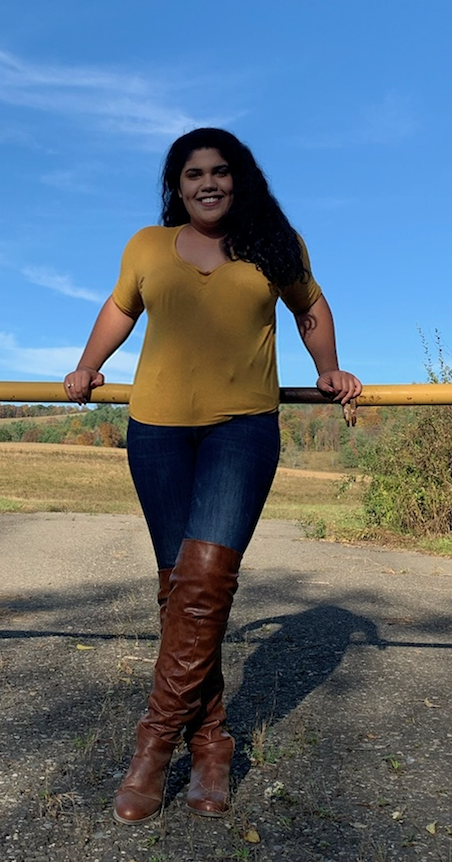

 MENU
MENU
